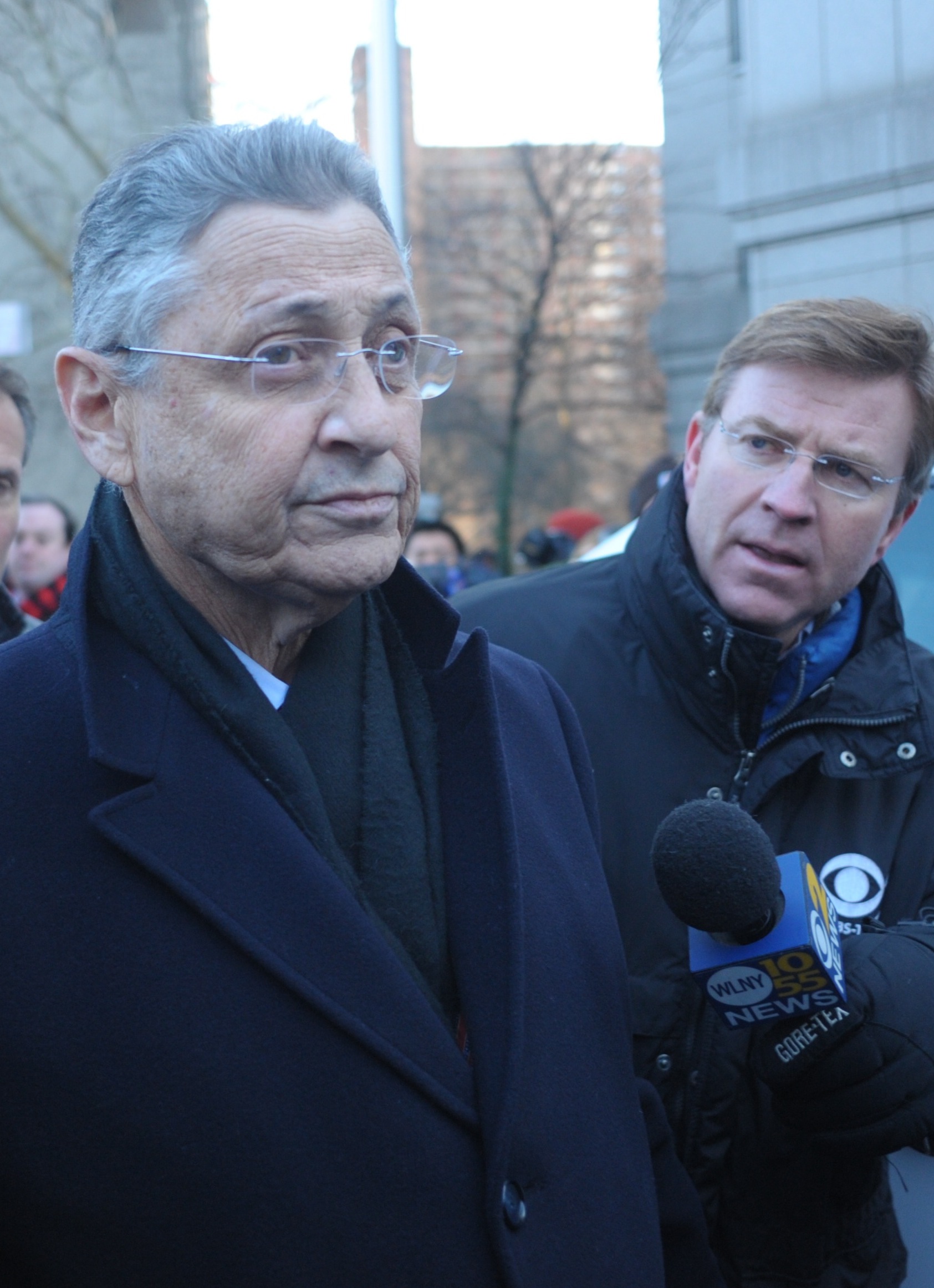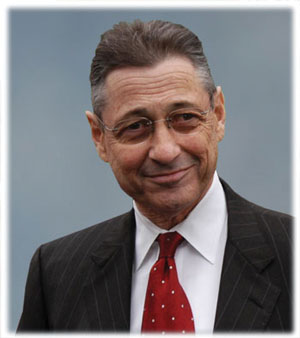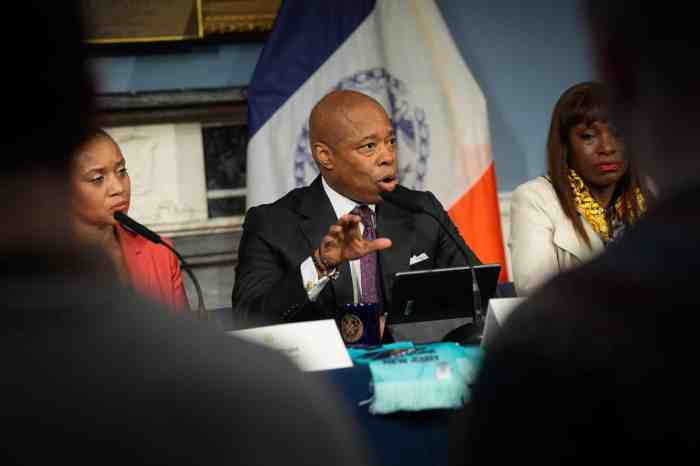
Many are taking pleasure in Sheldon Silver’s downfall. He stands accused of pocketing nearly $4 million illegally and, if convicted, could spend two decades in federal prison. At the same time, for community members who have benefitted from his good work in the Assembly, there is also pain.
The charges against Silver, who until this week was Assembly speaker, are numerous and serious. If they are true, there is nothing in Silver’s record that could justify them — but that also does not mean that his accomplishments should be overlooked.
Though he remains innocent until proven guilty, the Assembly obviously had to have a new leader. He plans to cling to his Assembly seat — at least for now — while he fights the charges. A possible scenario, if he can’t beat the rap, would see him take a plea bargain.
It’s unlikely U.S. Attorney Preet Bharara would have brought such a case against the powerful Silver unless he was extremely confident of winning it.
Bharara is reportedly now also probing the courts, where Silver installed judges — friends of his since their childhood together on Grand St. — allegedly favorable to his law firm’s lucrative asbestos patient cases. Even Governor Cuomo is said to be in Bharara’s sights for having abruptly shut down the Moreland Commission last year. In short, what did Cuomo know about the investigation into Silver, and what deal did he possibly cut with him, before the anti-corruption panel was terminated?
“Stay tuned,” Bharara announced after Silver’s arrest two weeks ago.
And so the New York Legislature continues to live up to its reputation as one of the country’s most dysfunctional. The list of top pols convicted or ushered out of office under a cloud of charges — Eliot Spitzer, Malcolm Smith, Pedro Espada, Alan Hevesi — only seems to grow.
Legislators’ outside income continues to be a serious problem, and now has been Silver’s downfall. State Senator Brad Hoylman, leading the way toward reform, has proposed limiting legislators’ outside income to $15,000 annually, and banning them from practicing law, which currently opens the door to the sort of graft Silver is accused of finagling. As Hoylman noted, the details of this sort of outside work “are often shrouded in secrecy and can contribute to conflicts of interest.”
Locally, though, in particular, Lower Manhattan had two unique circumstances and was fortunate to have a powerful advocate to cope with them. One was the Sept. 11 terrorist attack, which in addition to the senseless destruction of life, also had a devastating economic effect on Downtown; Silver’s advocacy meant the rebuilding was done better and with more of the community’s interests in mind.
The second was Lower Manhattan’s unprecedented population growth. Silver formed a School Overcrowding Task Force and made the city’s Department of Education address the problem.
On the negative side, Silver let the commuter tax be killed, depriving the city of millions of dollars in annual income. Bowing to pressure from his Assembly conference, he nixed Mayor Bloomberg’s congestion-pricing plan, which would have slashed auto traffic in Manhattan. Yet, he thankfully shot down Bloomberg’s West Side stadium plan, wielding his key vote on the Public Service Commission.
Above all, Silver championed bread-and-butter progressive issues: education, unions, programs for the poor. He helped pass gay marriage. He protected rent regulation — though some question how much.
Catering to his Grand St. base, Silver long resisted redevelopment of the Seward Park Urban Renewal Area (SPURA), favoring economic development over low-income housing.
But when, after decades, a consensus plan for SPURA emerged, he finally did support it. And so, “Shelly Silver’s parking lot” is now being transformed into housing with a mix of incomes and retail.
Silver’s legacy — the good, the bad and the ugly of it — will all be sorted out over time, as will the charges against him. Still, he deserves our thanks for the good that he did on the local level, and it was a lot.
If his departure as speaker causes the Legislature to be cleaned up, God willing, it’s obviously all for the best. It remains to be seen, though, if that really will happen.


















